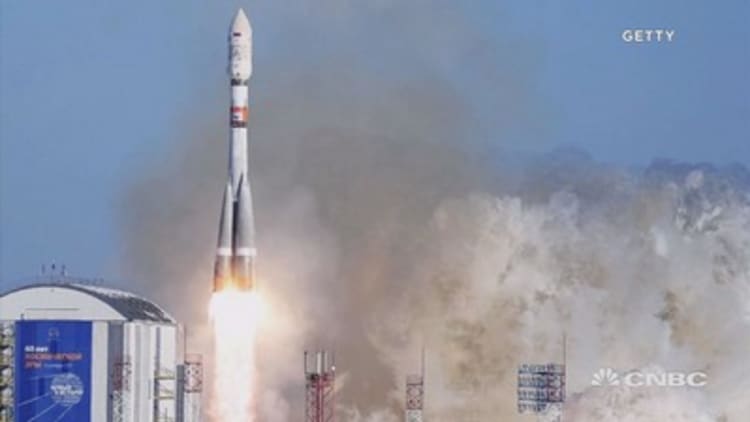The leader of the United States Space Force on Monday confirmed reports that a pair of Russian spacecraft have come very close to a U.S. spy satellite, saying that foreign satellites are showing "unusual and disturbing behavior."
"Last November the Russian government launched a satellite that subsequently released a second satellite. These satellites have been actively maneuvering near a U.S. government satellite ... which the Russian government characterized as 'inspector satellites,'" U.S. General John Raymond said in a statement to CNBC.
The extraordinary situation was noted by amateur spacecraft trackers last month, who pointed out that Russian satellite Kosmos 2542 had slowly made its way into the same area in orbit as USA 245 – a satellite the National Reconnaissance Office (NRO) operates. The NRO is an agency within the Department of Defense and one of the five major U.S. intelligence agencies.
Kosmos 2542 was not initially near USA 245. But, two weeks after launch, the Russian satellite split into two different objects. By the middle of January, Kosmos 2542 and Kosmos 2543 had moved in orbit and were closing in on USA 245. The Russian spacecraft were as close as 300 kilometers from USA 245, in clear view of the U.S. satellite. Additionally, the two Russian objects were able to see multiple sides of USA 245 due to the nature of their orbits – causing satellite trackers to speculate that Kosmos 2542 and Kosmos 2543 were indeed inspecting USA 245.

Gen. Raymond, recently appointed as the head of the U.S. Space Force, compared the recent activities to Russian satellite tests in 2017. Those satellites "exhibited characteristics of a weapon," Raymond said, because one of the spacecraft fired "a high-speed projectile into space."
He specifically called out Russia for developing technologies that could harm U.S. systems in space, saying the recent maneuvers could "create a dangerous situation in space."
"The United States finds these recent activities to be concerning and do not reflect the behavior of a responsible spacefaring nation," Raymond said.


